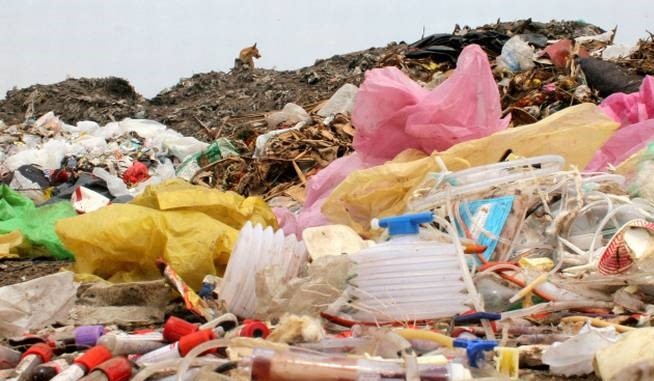The National Environmental Standards and Regulations Enforcement Agency (NESREA) has released guidelines for handling infectious wastes, within the context of the Coronavirus pandemic.

Enugu State Coordinator of the agency, Mr Pele Egbagiri, made this known on Friday, May 1, 2020 during the official handover of the guidelines to the state Ministry of Health.
According to him, an infectious waste is one suspected to contain pathogens, like laboratory culture, waste from isolation wards, tissues, materials or equipment that have been in contact with tubing, catheters and others.
“All materials, including personal protective equipment (PPE) used for the treatment of COVID-19, which has been declared a global pandemic, are considered infectious wastes.
“In one of the WHO’s technical briefs on COVID-19, it was stated that there would be a surge in the amount of healthcare wastes, as the pandemic spreads and that the containment and disposal of same may pose challenges until the pandemic is over.
“In line with international best practices, medical wastes generated from the treatment of highly contagious diseases, such as COVID-19, can only be managed in accordance with routine procedures, since no new regulations have been made to address it.
He said: “Waste handlers should wear appropriate PPE, such as boots, aprons, long-sleeve gowns, thick gloves and masks or face shields.
“In order to ensure environmentally-sustainable healthcare waste control practices, the Federal Government established NESREA in 2007, with the responsibility to enforce compliance with standard, regulations, rules, laws, policies and guidelines on environmental matters.”
Egbagiri recommended that any healthcare facility treating COVID-19 patients should provide sealed receptacles for the waste materials.
According to him, contaminated bedding should also undergo steam sterilisation, while patients’ care wastes should be incinerated.
He added that only properly-kitted workers should be allowed to evacuate or transport health wastes from isolation centers.
The NESREA coordinator said that isolation centres currently without healthcare waste incinerators should liaise with the nearest tertiary healthcare facilities to incinerate their wastes.
“We also recommend that containers should be properly labeled, in accordance with globally-harmonised system for classification and labeling of chemicals.
“Use freshly-made formulation and follow manufacturers’ instructions for appropriate dilution and use.
“Personal protective equipment, such as face masks and the overall used in the process of disinfection should be chemical-resistant so that the chemicals do not attack the materials,” he added.
While receiving the guideline, the Director of Public Health and Disease Control in the ministry, Mr Boniface Okoro, commended NESREA for the initiative, especially at this critical moment.
He promised to hand the document over to the state’s Emergency Operation Centre (EOC) for immediate implementation.
Okoro commended the government for working tirelessly in ensuring the safety of the state against the deadly virus.
By Ifeoma Aka
